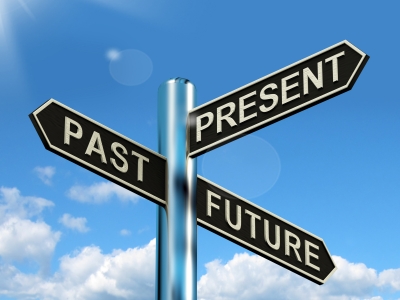I used to believe that my childhood and all its trauma were the source of my unhappiness in life. Have you ever blamed others, or the “bad stuff” that happened earlier in your life, for your current dissatisfaction? Well you’re not alone.
A friend of mine who is a high school counselor shared with me her conversations with teens about their future. She said that while some of these teens have “wishes” for their future selves, their deep longings are already buried by the limited notions of what is possible for them.
Do you ever wonder what life would be like “if only” (fill in the blank with any of the pain, trauma or life insults you’ve experienced) hadn’t happened? Wish you could start over, or eliminate some of the challenge or hurt you feel because you just know life would be better?
If you answered yes, like the teens, you may be bound to the wound-producing stories about your life that create a limited notion of who you are and your possibilities.
But it doesn’t have to end there. While you may now be a victim to the pain or trauma generated by the stories of your past, you can reframe your stories so that you are liberated from their hold on you.
Your life can be what you choose for it- you do not have to live out your life in the epic tale of sadness, frustration and regret.
Much like the high school teens whose life purpose seems limited by a negligent parent, no money for college, a history of substance abuse, or a learning disorder, the image of yourself based on these external ideas of possibilities can trap you in servitude to a lesser existence your entire life.
While very real circumstances create hurdles, it is not the hurdles that keep us stuck but the patterns of beliefs, habits, guilt and shame that cause us to dwell on the hurdles (and how hard it is to get over them) rather than the possibilities.
The unmet needs of childhood are often the source of what keeps us trapped in those limiting belief patterns. While the past cannot be altered, you can shift your focus from what you didn’t get or have as a child to creating conscious intention for the present. David Simon, co-founder of the Chopra Center, physician and ayurvedic healer, speaks about the “prison of toxic conditions” you create in your mind when you dwell on the past. When you learn to shift that focus to the present, and develop compassion for your struggles, studies show that you not only reduce self-criticism and lower stress hormones, but also increase internal resilience, begin to heal the shortages of caring from your childhood, and learn that you are capable of giving and receiving love.
Rick Hanson, Ph.D., neuropsychologist and author of Just One Thing and Buddha Brain, suggests that you can develop self-compassion by bringing to mind someone who really cares about you and thinking about their attitude, their posture, the words they would say, and how you would feel in that deep caring. Next, extend that compassion toward someone you care deeply about for one of their troubles. Lastly, imagine sharing that level of compassion with yourself, spreading a warmth throughout your body, acknowledging the difficulties and pain you have and still experience, and the hope for relief from frustration and pain you feel.
Self-generated warm fuzzies may seem superficial, and they certainly can’t change your past, but they can change the way you look at life and thus patterns of electrochemical processing in your brain, opening up a whole new dimension of possibility for your present and future.
Maybe you have learned to evoke compassion for yourself in some situations and not others. If you’re interested to learn how you can move your life out of the past and into the present, click here to learn more about how you can gain skills and tools.


I’ll right away seize your rss as I can’t in finding your email subscription link or e-newsletter service. Do you have any? Kindly let me know in order that I could subscribe. Thanks.
Hi Augustine, thanks so much for your interest. The RSS feed icon is on the very bottom of each page. Looks like I need to make it more visible! Thanks for your inquiry!